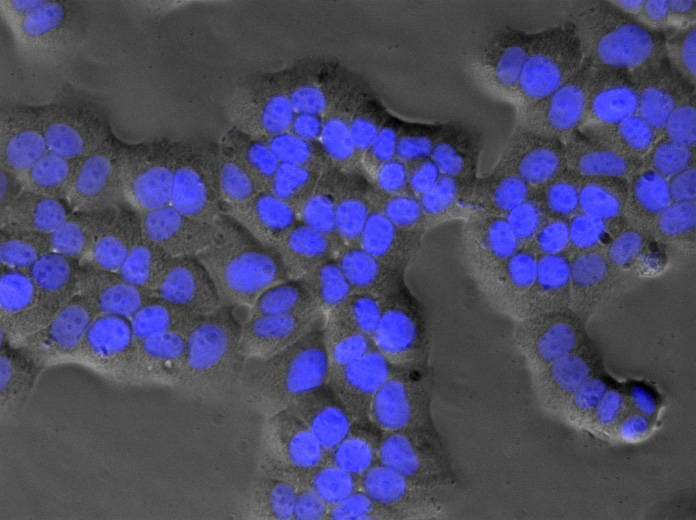Pregnancy
Screening of serum alpha-fetoprotein levels is offered to pregnant women primarily to identify those at risk of carrying a fetus with a neural-tube defect. Women with high alpha-fetoprotein levels have an elevated risk of having a child with a neural-tube defect and are referred for ultrasonography and other diagnostic procedures. Common explanations for elevated values of maternal serum alpha-fetoprotein include neural-tube defects, multiple gestation, and missed abortion. Elevated levels are also known to be associated with ventralwall defects and rare congenital disorders, such as congenital nephrosis.
Tumor marker
- AFP is also a tumor marker. Tumor markers are substances that are produced by cancer or by other cells of the body in response to cancer or certain benign (noncancerous) conditions. Most tumor markers are made by normal cells as well as by cancer cells; however, they are produced at much higher levels in cancerous conditions.
- AFP can help diagnose and guide the treatment of liver cancer (hepatocellular carcinoma). Normal levels of AFP are usually less than 10 ng/mL (nanograms per milliliter). AFP levels are higher in most patients with liver cancer. AFP is also high in acute and chronic hepatitis , but it seldom gets above 100 ng/mL in these diseases. In someone with a liver tumor, an AFP level over a certain value can mean that the pe rson has liver cancer. In people without liver problems, that value is 400 ng/mL. But a person with chronic hepatitis often has high AFP levels. For them, AFP levels over 4,000 ng/mL are a sign of liver cancer. AFP is also useful in following the response to treatment for liver cancer. If t he cancer is completely removed with surgery, the AFP level should go down to normal. If the level goes up again, it often means that the cancer has come back.
- AFP is also higher in certain germ cell tumors. Germ cells are cells that give rise to sperm and eggs (ova). Most are in the ovaries or testicles, but germ cells often remain in other parts of the body. Germ cell tumors with high AFP levels include some testicular cancers ( those containing embryonal cell and endodermal sinus types), certain rare types of ovarian cancer (yolk sac tumor or mixed germ cell cancer), and some germ cell tumors that start in the middle of the chest (mediastinal germ cell tumors). AFP is used to monitor the response to treatment, since high levels should go down when treatment works. If the cancer has gone away with treatme nt, the level should go back to normal. After that, any increase can be a sign that the cancer has come back.
- High levels of AFP may also mean other cancers, including Hodgkin disease, lymphoma, and renal cell carcinoma (kidney cancer)
Other diseases
Not all people with these cancers will have an elevated AFP. And elevated AFP levels also could be a sign of cirrhosis or chronic acute hepatitis.
Sources:
N Engl J Med. 1991 Jul 4;325(1):6-10. Second-trimester maternal serum alpha-fetoprotein levels and the risk of subsequent fetal death. Waller DK, Lustig LS, Cunningham GC, Golbus MS, Hook EB.
American Cancer Society
Rochester University
American Cancer Society
Rochester University
